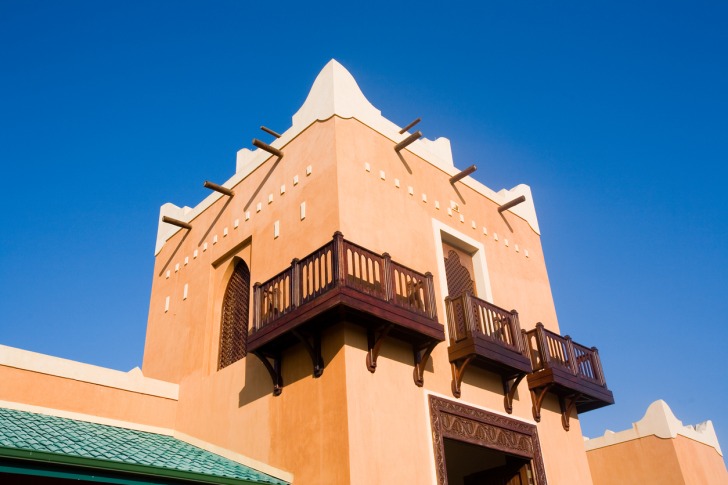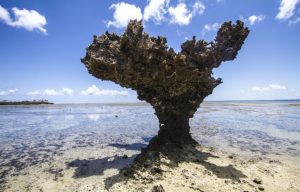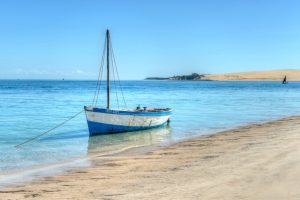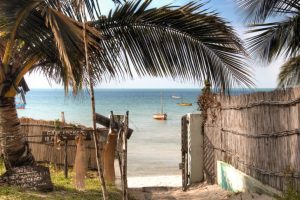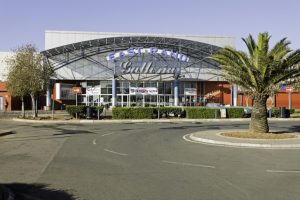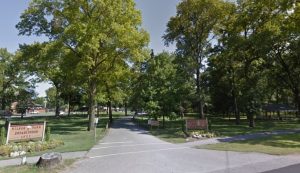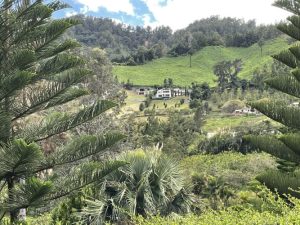 Mozambique : Safety by City
Mozambique : Safety by City
Mozambique - safety as a country
Pemba, Mozambique is the capital of the Cabo Delgado province.
It is also the gateway town to the Quirimbas Archipelago.
The Niassa Company founded Pemba, Mozambique in 1904, giving it the name of Porto Amélia, after Portugal’s queen.
The town was renamed Pemba in 1975 when the Portuguese no longer ruled the area.
The town celebrated its founding in public every year, except for when there was unrest or other safety risks in or near Pemba.
The rapidly growing secondary town appeals to travelers because of being an important port city, and because of being an ideal area for water sports.
It also has an amazing coral reef that is close to its shore.
Travelers are likely to wonder if Pemba, Mozambique is safe to visit now.
Learning about travel advisories, safety risks, and current weather are a few factors that may determine whether the town is a safe place to visit when travelers want to plan their trip.
Warnings & Dangers in Pemba

OVERALL RISK: HIGH
Several issues exist that may cause safety issues for travelers. A July 2023 notice from the U.S. Department of State Bureau of Consular Affairs revealed that health issues and crime are issues in Pemba.

TRANSPORT & TAXIS RISK: MEDIUM
Use reputable, registered taxi companies. Do not hail a taxi on the street anywhere in Pemba, Mozambique. Call a taxi company from your hotel or the airport. Avoid riding in the yellow and green taxis. There have been reports of theft from travelers who used these taxis. Buses are available in Pemba for public transport. Take the private, intercity bus to your destination. The minibusses, or chapas, are usually overcrowded, and they are not maintained well. Travelers who rent a car should not let their gas tank go below half-full. Fuel shortages may occur in the area, leaving travelers without a way to put fuel in the car.

PICKPOCKETS RISK: MEDIUM
Consider wearing clothing or jackets that have inside pockets to avoid losing your money or wallet to pickpockets. Carry a purse that is a crossbody style. Make sure that it has a zipper that fully closes it. Pickpockets do not wait until nightfall to commit their crimes. Pickpockets often target travelers throughout the daytime hours.

NATURAL DISASTERS RISK: HIGH
Cyclones recently caused devastation to Pemba and nearby areas. The subsequent flooding caused even more damage. The U.S. Agency for International Development (USAID) reveals that over 35 years, Mozambique had 75 declared natural disasters. The list includes 25 floods, 23 epidemics, 14 tropical cyclones, and 13 events of drought.

MUGGING RISK: MEDIUM
Travelers have been victims of muggings at all hours when they visit Mozambique. Muggings occur frequently in secondary cities, such as in Pemba. Keep a low profile, and be aware of your surroundings to help improve your safety.

TERRORISM RISK: HIGH
Terrorism is a high risk throughout many areas of Mozambique. Pemba is particularly vulnerable to terrorist activities. Travelers may avoid going to Pemba because of terrorist activity. The U.S. Department of State indicates that travelers should reconsider traveling to Pemba. The reason given is terrorism.

SCAMS RISK: MEDIUM
Do not let your credit card out of your site when you pay for merchandise, food, or services. Card cloning occurs in several ways, including when unsuspecting travelers do not realize that they are victims. Check your credit card statement both while in Pemba, and after you return home. Cover the pin pad when you enter your information at a restaurant, a shop, or an ATM.

WOMEN TRAVELERS RISK: MEDIUM
Women travelers are often subjected to harassment if they travel alone to Pemba, or to other cities in Mozambique. They are also regularly subjected to verbal abuse. Women should not walk in areas where there are not many people. Do not go out at night unless you are with a group.

TAP WATER RISK: HIGH
Do not drink the tap water in Pemba, Mozambique. The water may be contaminated with bacteria, parasites, or other organisms. Some sources warn travelers not to let water get into their mouth and to avoid inhaling it when taking a bath or shower.
Safest Places to Visit in Pemba
Several places in Pemba are safe for travelers who want to visit the town.
The town center is where travelers go to the bank, enjoy dining options, and wait for the next bus at the main bus stop.
Avani Pemba Beach is just a short distance from the airport.
Stay in one of the rooms for the night, enjoy walking through the garden area, and the views of the Indian Ocean.
Wimbi Beach is a popular tourist destination.
It is about five kilometers east of Pemba town center.
Travelers can take their first diving class at Wimbi Beach, or take in the gentle sea breezes.
Choose to grab something to eat or get a drink at Wimbi Beach.
Order a meal at the fish market, which is located in the northern part of town.
The small fish market attracts locals and travelers.
Places to Avoid in Pemba
Stay away from anyplace where large groups of people are congregated or where there are demonstrations.
It is important to know that demonstrations or confrontations can occur without warning.
Travelers may want to hire a private car to take them to their hotel or to see the sites.
Drivers in Pemba do not always respect traffic laws. Speeding, drinking and driving, and reckless driving are some causes of car accidents.
Large crowds may gather after a car accident and become violent.
Stay aware of your surroundings when you are in public areas such as restaurants, bars, and popular tourist attractions.
Insurgent militants and terrorists may commit attacks.
Kidnappings occur regularly in the Cabo Delgado province.
Kidnappers often target victims during daytime hours.
Criminals may look for people who appear to be wealthy.
Avoid freshwater locations such as wetlands, lakes, and rivers.
The water may have parasites.
Safety Tips for Traveling to Pemba
- Stay aware of your surroundings. Stay aware of your surroundings to help improve your safety in Pemba. Pay attention to people who are close to you.
- Avoid walking in isolated areas. Kidnappings, muggings, armed robberies, and other crimes often occur in isolated areas throughout Mozambique. Travelers should avoid isolated areas, even around their hotel or when they visit the sights.
- Monitor local media. Monitor the local media to learn about threats of terrorism, violent crimes, and demonstrations. Travelers may have to adjust their plans within a short time.
- Avoid wearing expensive jewelry or other accessories. Do not wear expensive jewelry. Avoid carrying expensive accessories so that criminals do not think that you are a wealthy target.
- Pay attention to card readers. Do not use your credit cards or debit cards on any card reader that seems to have irregular features or unusual features. Check your account statement for unauthorized transactions.
- Do not bring illegal drugs to Pemba. Travelers are subject to Mozambique’s laws and the laws of Pemba when they travel to Pemba, Mozambique. Carrying, possessing, or trafficking in drugs may result in your arrest and imprisonment for a long time.
- Be aware of police corruption. Police in Pemba, and in other places in Mozambique, are known for committing acts of corruption. They extort people by threatening to arrest them or take their documents. Corrupt officers usually want their victims to pay a fine or bribe.
- Be prepared to pay for medical care. Travelers who seek medical treatment are often surprised to learn that they must pay for their medical care at the time of service. Make sure that you plan this into your budget, in case you need care or treatment.
- Do not use chapas. The U.S. Embassy warns travelers from the U.S. not to use chapas, which are the local minibusses. The vehicles are often involved in serious, even fatal accidents.
- Use insect repellent. Spray insect repellent on all exposed skin when visiting Pemba. Using insect repellents may help protect travelers from diseases borne by mosquitoes, flies, fleas, or ticks.
So... How Safe Is Pemba Really?
Pemba, Mozambique features a tropical Savannah climate and several amazing destinations for travelers.
The culture and beauty of Pemba is often overshadowed by both property crimes and violent crimes.
Terrorism is an ongoing risk that can happen at any time.
Travelers need to stay alert to what is going on around them.
Avoiding demonstrations is one way to reduce the risk of becoming a victim.
Women travelers do not have the risks that occur in some other countries.
Although sexual assaults do happen, women are more likely to be subjected to ridicule and harassment when traveling alone.
The U.S. and Canada both warn travelers to reconsider going to Pemba City, which is a frequent target of militants and other violent criminals.
How Does Pemba Compare?
| City | Safety Index |
|---|---|
| Pemba | 29 |
| Quirimbas Archipelago | 68 |
| Bazaruto Archipelago | 62 |
| Maputo | 32 |
| Vilanculos | 32 |
| Inhambane | 45 |
| Deadwood (United States) | 80 |
| Sturgis (United States) | 80 |
| Pierre (United States) | 81 |
| Spearfish (United States) | 80 |
| Hill City (United States) | 83 |
| Temuco (Chile) | 31 |
Useful Information

Visas
Travelers need to check the U.S. Department of State for updates on an issue with the Mozambican e-visa website before planning their trip. The site has special guidance for people who want to obtain a visitor visa. Tourists must show proof of a round-trip flight and a hotel reservation when applying for a visa. Travelers may have to pay administrative fees.

Currency
The currency for Mozambique is the Mozambican metical. It is the only currency accepted in Mozambique. Debit cards and credit cards are another payment options. Exchange currency at reputable places. Do not exchange currency at any location except for a bank or an exchange bureau.

Weather
Pemba has a tropical climate. One interesting fact about the weather in Pemba, Mozambique is that there is not much difference between the coldest temperature and the warmest temperature. The weather is hot and muggy from January through April. July is the coldest month of the year.

Airports
The Pemba Airport is a small, international airport. Travelers depart from the airport to their Pemba destination by taking a taxi, a bus, or a shuttle. Some people hire a private driver to take them to their hotel or to another destination.

Travel Insurance
Purchasing travel insurance is an important part of planning a trip to Pemba, Mozambique. Travelers want to protect themselves from losses that they may incur because of crime in Mozambique, or because of other safety risks. They should also purchase evacuation insurance.
Pemba Weather Averages (Temperatures)
Average High/Low Temperature
| Temperature / Month | Jan | Feb | Mar | Apr | May | Jun | Jul | Aug | Sep | Oct | Nov | Dec |
|---|---|---|---|---|---|---|---|---|---|---|---|---|
| High °C |
31 | 31 | 31 | 30 | 29 | 28 | 27 | 27 | 28 | 29 | 30 | 31 |
| Low °C |
24 | 24 | 24 | 23 | 21 | 19 | 19 | 19 | 20 | 22 | 24 | 24 |
| High °F |
88 | 88 | 88 | 86 | 84 | 82 | 81 | 81 | 82 | 84 | 86 | 88 |
| Low °F |
75 | 75 | 75 | 73 | 70 | 66 | 66 | 66 | 68 | 72 | 75 | 75 |
Mozambique - Safety by City
| City | Safety Index |
|---|---|
| Bazaruto Archipelago | 62 |
| Inhambane | 45 |
| Maputo | 32 |
| Pemba | 29 |
| Quirimbas Archipelago | 68 |
| Vilanculos | 32 |
